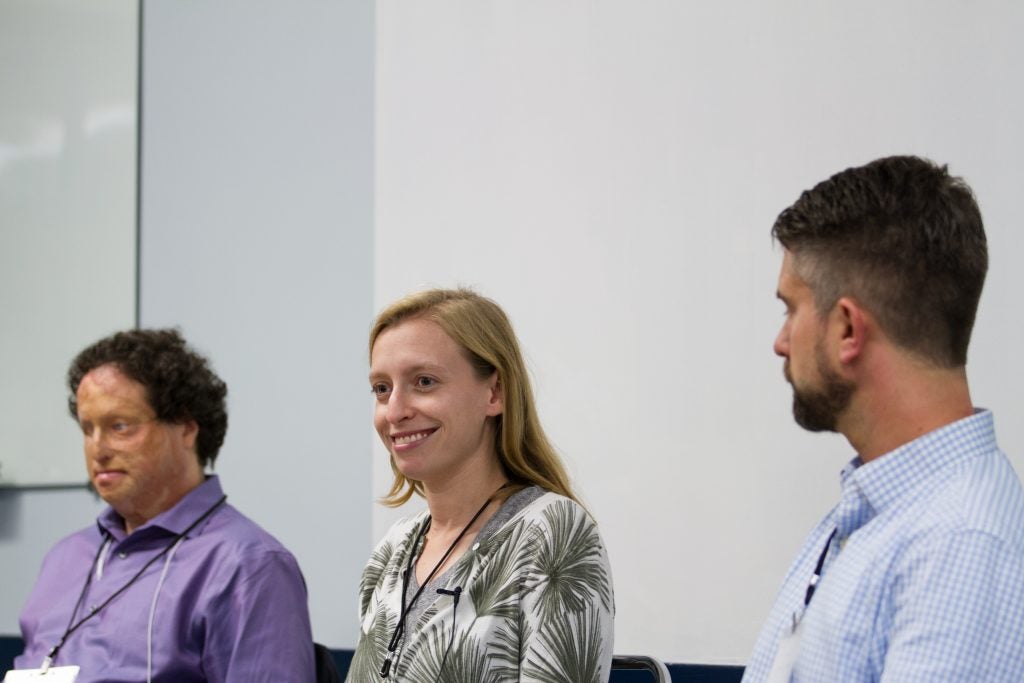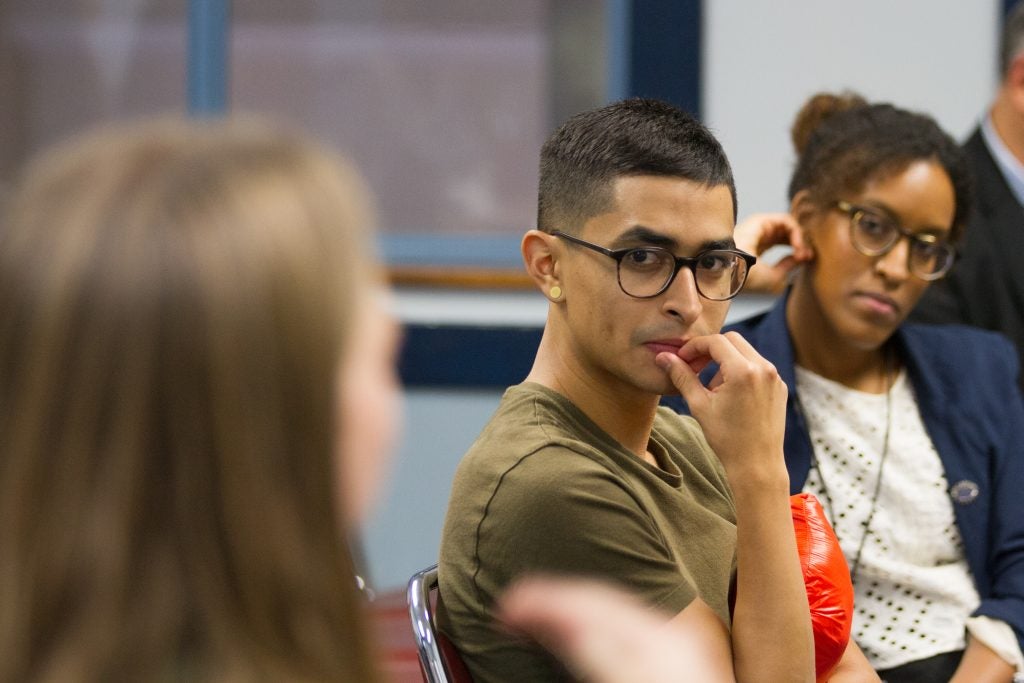2018 Symposium
Inclusive science communication counters the systemic oppression of marginalized communities and engages all voices in scientific dialogue. An inclusive approach recognizes the whole person with whom practitioners engage, focusing on the multiple identities we all possess. In September 2018, InclusiveSciComm: A Symposium on Advancing Inclusive Public Engagement with Science, brought together researchers, practitioners, trainers, journalists, activists, and funders to learn from one another, share resources, and conceive a more inclusive future for science communication. The University of Rhode Island’s Metcalf Institute and a nationally representative planning committee organized the symposium to facilitate conversation and develop networks that transcend disciplinary expertise and sectoral employment. The planning committee selected central themes of frameworks, media, challenges, and strategies, which guided selection of presenters and organization of concurrent sessions.
The first national symposium of its kind, Inclusive SciComm was held at the University of Rhode Island in Kingston, Rhode Island. The symposium’s 150 participants included students and professionals who represented a variety of sectors involved with science communication and public engagement with STEM topics. Through a series of concurrent panels, a keynote address, and workshop sessions, attendees moved from learning about examples of inclusive approaches to building understanding of how to intentionally integrate inclusivity into their own science communication practice and/or research. This summary provides an overview of participant experiences at the symposium and a qualitative assessment of outcomes based on conversations with attendees and organizing committee observations. A more quantitative review of the symposium can be found in the technical report.
Based on surveys conducted before and after the symposium, tweets, testimonials, and participant observation, the symposium’s objectives and most of its intended outcomes were achieved. Attendees arrived with a range of experience in conversations on diversity, equity, and inclusion, and the ways those issues inform science communication activities. Attendees left with greater awareness and confidence in the use of inclusive language, program design, and practice. Panelists discussed a wide range of methods for practicing inclusive public engagement, continually reinforcing that successful efforts require centering a goal of inclusion from the start of the project. Participant observations, tweets, and testimonials suggest that panelists were effective in explaining the systemic barriers to inclusion for underrepresented groups and the existing practices of inclusive science communication.
The most noted event of the symposium was the keynote address by Dr. Raychelle Burks of St. Edward’s University, in which she discussed her own path to discovering a sense of belonging and finding a place for her science communication work in the constraints of academia. The collaborations that have materialized from connections made at the conference demonstrate that it was an effective network-building opportunity, creating a more cohesive community of inclusive science communication practitioners.
Feedback from participants and social media responses suggest this initial event sparked an important conversation that needs to continue. The one outcome that was not fully realized was the ambitious goal of forming a framework for a national inclusive science communication network. Instead, the symposium culminated in a discussion that summarized an essential first step toward that framework: the importance of facilitating difficult conversations related to inclusion. These conversations require not only cultural humility and a working fluency among science communication practitioners and researchers in the vocabulary of diversity, equity, and inclusion, but also a commitment to elevating and supporting marginalized voices. Additionally, we brainstormed plans for future symposia and began to build a bank of existing resources and collaborators on inclusive science communication. The lasting relationships and momentum of InclusiveSciComm suggest that a national network is a feasible goal as many partners, organizations, and individuals work to prioritize a national emphasis on truly inclusive public engagement with science.
This summary was written by Kaytee Canfield, a doctoral student at the University of Rhode Island.


